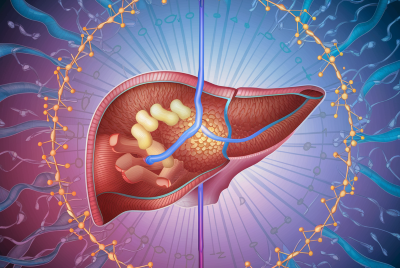Ketones and High Blood Pressure: Friend or Foe?
The ketogenic diet (keto) has become a popular choice for weight loss and improved health. However, a crucial question lingers for those with high blood pressure: can ketones and high blood pressure coexist peacefully? This article explores the science behind ketosis, the metabolic state induced by keto, and its potential impact on blood pressure regulation.
Understanding Ketones and Ketosis
Ketones are an alternative energy source the liver produces when the body’s glucose (sugar) stores are depleted. This typically happens during periods of fasting or following a low-carb, high-fat diet like keto. When glucose becomes scarce, the liver breaks down fat molecules into ketones, which the body’s cells can then use for fuel. Ketosis is the metabolic state where the body primarily relies on ketones for energy.
Ketones and High Blood Pressure: A Murky Relationship
The relationship between ketones and high blood pressure is a subject of ongoing research. While some studies suggest potential benefits of ketosis for blood pressure management, others haven’t found a definitive connection. Let’s delve deeper:
- Potential Benefits: Some research suggests that ketosis might improve blood pressure in some individuals. Proposed mechanisms include:
- Weight Loss: A common effect of keto is weight loss. Excess weight is a significant risk factor for high blood pressure. Losing weight can help lower blood pressure readings.
Improved Insulin Sensitivity: Keto can improve insulin sensitivity. Insulin is a hormone that helps regulate blood sugar levels. When insulin sensitivity is impaired, the body produces more insulin to manage blood sugar, which can contribute to high blood pressure.
- Reduced Inflammation: Chronic inflammation is linked to various health problems, including high blood pressure. Some studies suggest that keto might help reduce inflammation in the body, potentially leading to lower blood pressure.
- Weight Loss: A common effect of keto is weight loss. Excess weight is a significant risk factor for high blood pressure. Losing weight can help lower blood pressure readings.
- Uncertainties Remain: More long-term research is needed to confirm the potential benefits of ketosis for blood pressure control. Additionally, some studies haven’t shown a significant impact on blood pressure in all individuals on keto. The reasons for these varying results are still being explored. Factors like individual health status, duration of ketosis, and dietary variations within keto might play a role.
Blood Pressure Medications and Ketosis
If you have high blood pressure and are considering keto, consulting your doctor is essential. They can help you manage your medications and monitor your blood pressure closely throughout your keto journey.
- Medication Adjustments Might Be Necessary: As your body adjusts to ketosis and potentially experiences weight loss, your blood pressure medication dosages might need to be adjusted by your doctor. Regular monitoring helps ensure your blood pressure stays within a healthy range.
- Close Monitoring is Key: Regular blood pressure monitoring is crucial during keto, especially if you have high blood pressure. This allows for timely adjustments to medications or the dietary approach if needed. Don’t wait for symptoms to appear before checking your blood pressure. Aim to monitor your blood pressure at home several times a week, following your doctor’s instructions.
- Electrolyte Balance Matters: Keto can lead to changes in electrolyte levels, including sodium, potassium, and magnesium. Electrolyte imbalances can contribute to high blood pressure. Your doctor might recommend monitoring your electrolytes and taking supplements if necessary.
Who Should Be Cautious?
While keto might offer some benefits for blood pressure control in certain cases, some individuals need to proceed with caution. Here’s who might need to be extra careful:
- Individuals with Uncontrolled High Blood Pressure: If your high blood pressure is not well-controlled with medication, starting keto might not be advisable. Uncontrolled high blood pressure puts you at a greater risk of heart disease and stroke. Discuss other weight loss and blood pressure management strategies with your doctor.
- Underlying Kidney Issues: Those with pre-existing kidney problems should consult a doctor before considering keto. Dehydration, a potential side effect of keto, can further strain the kidneys. Additionally, some studies suggest keto might affect kidney function, which can in turn impact blood pressure. A doctor can assess your individual kidney health and advise on the suitability of keto for you.
- Pregnant or Breastfeeding Women: Pregnant and breastfeeding women should avoid keto due to potential risks to the developing baby. If you’re pregnant or breastfeeding and considering dietary changes for weight management or other health reasons, consult a healthcare professional specializing in prenatal or postnatal care.
Safety First: Consult Your Doctor
Before embarking on a keto journey, especially if you have high blood pressure or any other pre-existing medical conditions, consulting a healthcare professional is vital. They can assess your individual situation, determine if keto is suitable for you, and guide you on safe implementation. Here’s what to expect during your consultation:
- Medical History Review: Your doctor will review your medical history, including any medications you’re taking.
A Personalized Keto Approach for Blood Pressure Management
A one-size-fits-all approach doesn’t work well with keto, especially when managing high blood pressure. Here’s how you and your doctor can work together to create a personalized keto plan that prioritizes both weight loss goals and blood pressure control:
- Gradual Transition: A rapid switch to a strict keto diet can cause initial fluctuations in blood pressure. Discuss a gradual transition plan with your doctor, incorporating healthy fats and reducing carbs incrementally. This allows your body to adapt to ketosis more smoothly.
- Focus on Whole, Unprocessed Foods: Prioritize whole, unprocessed foods like fatty fish, olive oil, avocado, nuts, seeds, and low-carb vegetables. These foods offer essential nutrients that support overall health and potentially benefit blood pressure control. Limit processed meats, sugary drinks, and unhealthy fats, which can have negative effects on blood pressure.
- Maintaining Electrolyte Balance: As mentioned earlier, electrolyte imbalances can contribute to high blood pressure. Work with your doctor to monitor your electrolyte levels (sodium, potassium, magnesium) and take supplements if needed. Maintaining proper hydration is also crucial for electrolyte balance.
- Regular Blood Pressure Monitoring: Regularly monitor your blood pressure at home, following your doctor’s instructions. This allows for early detection of any changes and timely adjustments to medication or the keto plan.
- Open Communication is Key: Maintain open communication with your doctor throughout your keto journey. Discuss any changes in blood pressure, side effects, or concerns you might have. Regular doctor visits are essential to assess your progress and ensure your overall health is not compromised.
Living a Healthy Keto Lifestyle for Heart Health
While the impact of keto on high blood pressure is still being researched, incorporating healthy lifestyle habits alongside your keto plan can further support heart health:
- Regular Exercise: Aim for regular physical activity most days of the week. Exercise helps lower blood pressure, improves insulin sensitivity, and promotes weight loss. However, discuss appropriate exercise routines with your doctor, especially if you’re new to exercise or have any limitations.
- Stress Management: Chronic stress can contribute to high blood pressure. Explore stress management techniques like yoga, meditation, or deep breathing exercises to help manage stress levels.
- Adequate Sleep: Aim for 7-8 hours of quality sleep each night. Poor sleep can disrupt hormones that regulate blood pressure.
- Smoking Cessation: If you smoke, quitting is one of the most important things you can do for your heart health. Smoking significantly increases your risk of heart disease and stroke.
Conclusion: Weighing the Risks and Benefits
The potential impact of ketones on high blood pressure is complex. While some studies suggest promise, more research is needed. If you have high blood pressure and are considering keto, prioritize open communication with your doctor.
A personalized approach that factors in your health history, medications, and blood pressure control is key. By working with your doctor, you can explore the potential benefits of keto while safeguarding your overall health. Remember, a balanced approach that prioritizes both weight management and blood pressure control is essential for long-term health.
| Final advice: Ideally, Keto should not be a one-size-fits-all diet plan. The ideal is to have a personalized keto diet plan where your personal circumstances, needs and goals are taken into consideration in the plan. It must include an assessment of your body condition, daily physical activity level (couch potato, somewhat active, very active, etc.), gender, age, height, weight, dietary preferences (preferred types of meats, veggies, eggs, nuts, cheese, butter, etc.) Get your custom keto diet plan NOW |
List of References:
- National Institutes of Health: https://www.niddk.nih.gov/health-information/weight-management/adult-overweight-obesity
2. American Heart Association: https://www.heart.org/en/health-topics/high-blood-pressure
Transparency Disclosure: This article was written with AI assistance in the research and outlining but with comprehensive editing, refining and fact-checking by the author to ensure accuracy and high-quality content.





